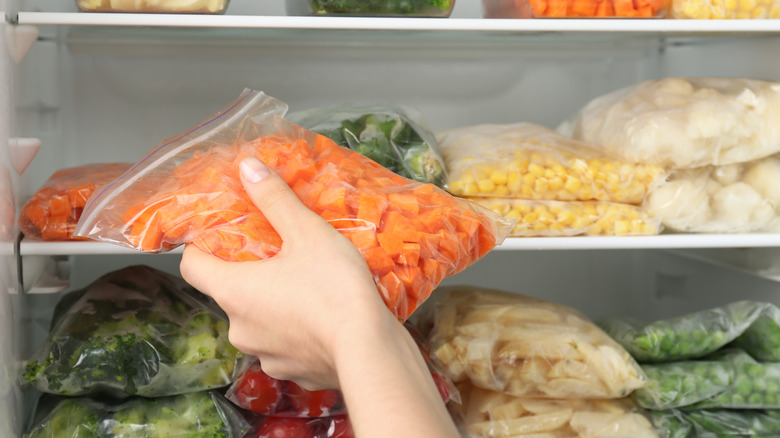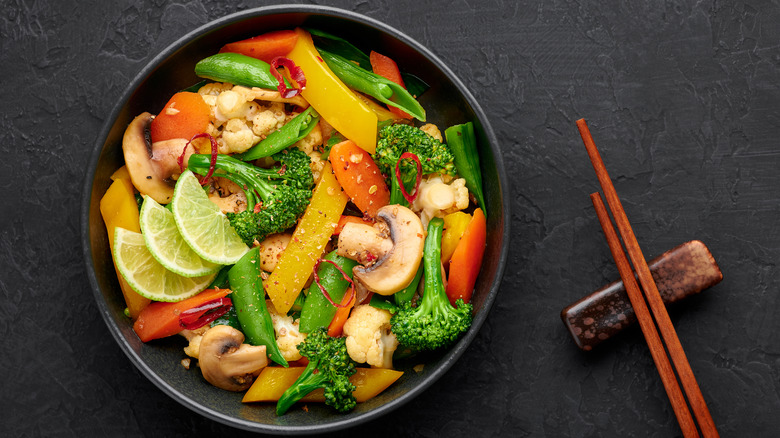Why Your Frozen Vegetables Turned Out Soggy
There are many reasons why so many people buy and prepare frozen vegetables. In terms of convenience, they're hard to beat. The slicing, dicing, and peeling have all been done for you, so that's a win. And according to The Kitchn, since frozen veggies are flash-frozen at their most ripe, they are just as nutritious as fresh vegetables. The same can't be said for canned veggies. But in terms of taste and texture, frozen vegetables can get a bad rap. Especially if they haven't been prepared properly. One bowl of mushy peas can turn somebody off of them forever.
Are all frozen vegetables created equal? According to Bon Appétit, the answer is, no. They recommend sticking to peas (not many people have time to shell fresh ones), artichoke hearts (not worth picking through the leaves to get to the heart), and spinach (don't blanche if you don't have to) for the best results.
But for others, there are plenty of other delicious frozen vegetable options to choose from. It all boils down (no pun intended) to how you prepare them.
Skip the thawing
Avoiding soggy frozen vegetables begins in the freezer aisle, according to the Huffington Post. If you squeeze a bag and the vegetables feel clumped together, search for another bag. The clumps indicate that your broccoli or other chosen veggie was thawed and refrozen during its trip to your store.
You found some desirable frozen vegetables at the store. Now what? There are several ways to make sure they maintain their consistency and taste. According to the Huffington Post, one of the biggest mistakes home chefs make is thawing frozen vegetables before cooking them. Cooking them from a frozen state can help you achieve the best texture. And try not to boil or microwave them, either. The Kitchn recommends roasting vegetables like broccoli, cauliflower, and Brussels sprouts. Just throw them on a hot baking sheet (again without thawing) and put them in the oven.
And finally, adjust your cooking time accordingly. Food52 recommends adding frozen ingredients towards the end of the cooking time for soups and stews. Frozen broccoli, cauliflower, and carrots should be added to stir-fry dishes mid-way. Or don't cook them at all! Bite-sized veggies like corn, peas, and edamame just need a quick thaw before you toss them in a dressing for a salad.

